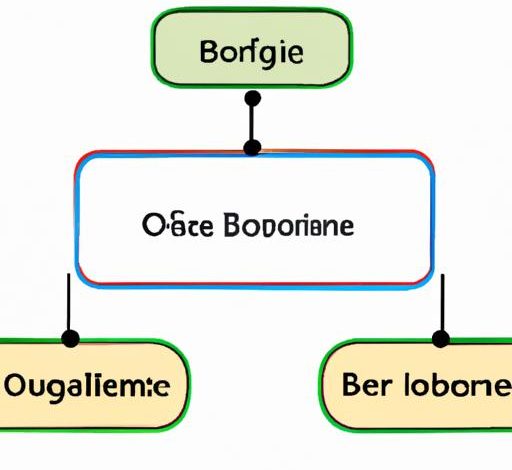Boolean in Oracle Data Type: An Introduction to Efficient Data Handling

In the realm of Oracle databases, the Boolean data type emerges as a powerful asset for effective data management. With its ability to represent true or false values, the Boolean data type offers a streamlined approach to handle logical expressions and decision-making processes. In this article, we will delve into the nuances of the Boolean data type in Oracle, understanding its definition, significance, and practical applications.
A. Definition of Boolean Data Type
To begin our journey into the realm of Oracle data types, we must first grasp the essence of the Boolean data type. In Oracle, the Boolean data type is a logical data type that can hold two values: TRUE or FALSE. This binary representation provides a concise and efficient way to express conditions, predicates, and logical outcomes within the database.
B. Importance and Applications of Boolean Data Type in Oracle
Now that we comprehend the fundamental nature of the Boolean data type, let us explore its significance and the wide-ranging applications it offers within the Oracle ecosystem. The Boolean data type serves as a fundamental building block for decision-making processes, enabling developers to construct conditional statements, perform logical operations, and implement control flow structures effectively.
By leveraging the Boolean data type, developers can enhance the efficiency and readability of their code. Whether it be executing specific actions based on true/false conditions or filtering data to extract relevant information, the Boolean data type empowers programmers to streamline their operations while maintaining code clarity.
From validating user inputs to implementing complex business rules, the Boolean data type proves its versatility across various domains. Its applications extend beyond simple true/false evaluations, allowing for intricate logical expressions that enable sophisticated data manipulation and analysis.
In the upcoming sections, we will unravel the syntax, usage, storage, and best practices associated with the Boolean data type in Oracle. So, fasten your seatbelts as we embark on a journey to harness the power of Boolean within the Oracle data type landscape!
Syntax and Usage of Boolean Data Type in Oracle
A. Declaring and Initializing Boolean Variables
When working with Boolean data type in Oracle, it is crucial to understand the proper syntax for declaring and initializing Boolean variables. To declare a Boolean variable, use the BOOLEAN keyword followed by the variable name. For example:
DECLARE
isTrue BOOLEAN := TRUE;
isFalse BOOLEAN := FALSE;
BEGIN
-- Code logic here
END;By assigning the values TRUE or FALSE to the Boolean variables during initialization, you can control their initial state. These variables can then be utilized throughout the program to hold and manipulate Boolean values.
B. Boolean Expressions and Operators in Oracle
In Oracle, Boolean expressions play a pivotal role in evaluating conditions and making logical decisions. These expressions rely on Boolean operators such as AND, OR, and NOT to combine and manipulate Boolean values.
For instance, you can construct a Boolean expression using comparison operators like = (equal to), <> (not equal to), < (less than), > (greater than), <= (less than or equal to), and >= (greater than or equal to). These expressions can be used in various SQL statements like SELECT, WHERE, and IF statements to filter and manipulate data based on logical conditions.
C. Using Boolean Data Type in Conditional Statements
One of the primary applications of the Boolean data type in Oracle is its utilization in conditional statements. By incorporating Boolean variables or expressions within IF-THEN-ELSE or CASE statements, developers can execute specific code blocks based on the evaluation of Boolean conditions.
For example:
DECLARE
isConditionMet BOOLEAN := TRUE;
BEGIN
IF isConditionMet THEN
-- Code logic for when the condition is true
DBMS_OUTPUT.PUT_LINE('Condition is met.');
ELSE
-- Code logic for when the condition is false
DBMS_OUTPUT.PUT_LINE('Condition is not met.');
END IF;
END;By leveraging the power of Boolean data type within conditional statements, developers can dynamically control the flow of their programs and execute tailored logic based on Boolean evaluations.
In the next section, we will explore how Boolean values are stored in Oracle database tables and how to retrieve them efficiently. So, let’s dive deeper into the realm of Boolean data handling in Oracle!
Storing Boolean Values in Oracle Database
When it comes to storing Boolean values in an Oracle database, there are several considerations to keep in mind. In this section, we will explore the various aspects of storing Boolean values, including the utilization of Boolean columns, inserting and retrieving Boolean values, and incorporating Boolean values in query conditions.
A. Boolean Columns in Oracle Tables
One of the primary ways to store Boolean values in an Oracle database is by utilizing Boolean columns in tables. By defining a column with the Boolean data type, we can efficiently store and manipulate true/false values within the database.
When creating a table, the Boolean column can be defined using the BOOLEAN or NUMBER(1) data type. The BOOLEAN data type is generally recommended as it provides a more intuitive representation of true/false values. However, it’s worth noting that Oracle internally stores Boolean values as 0 (FALSE) and 1 (TRUE) when using the BOOLEAN data type.
B. Inserting and Retrieving Boolean Values in Oracle
To insert Boolean values into a Boolean column, you can use the INSERT statement and specify the true/false value explicitly. For example, to insert a TRUE value into a Boolean column named is_active, you would execute:
INSERT INTO your_table (is_active) VALUES (TRUE);Similarly, to insert a FALSE value, you would use FALSE instead.
When retrieving Boolean values from the database, you can simply query the Boolean column like any other column in your SELECT statement. The result will be returned as TRUE or FALSE.
C. Boolean Values in Query Conditions
Boolean values play a crucial role in query conditions, enabling us to filter and manipulate data based on specific criteria. In Oracle, we can incorporate Boolean values in query conditions using logical operators such as AND, OR, and NOT.
For instance, to retrieve all rows where the is_active column is set to TRUE, we would use the following query:
SELECT * FROM your_table WHERE is_active = TRUE;Conversely, to retrieve rows where the is_active column is set to FALSE, we can modify the query as follows:
SELECT * FROM your_table WHERE is_active = FALSE;By leveraging Boolean values in query conditions, we can effectively filter and manipulate data to meet our specific requirements within the Oracle database.
Stay tuned as we move forward to explore the comparisons between Boolean data types and other data types in Oracle in the upcoming section.
Comparing Boolean Data Type with Other Data Types in Oracle
A. Differences between Boolean and Numeric Data Types in Oracle
When it comes to data handling in Oracle, understanding the distinctions between the Boolean data type and other data types is crucial. Let’s dive into the dissimilarities between the Boolean and numeric data types.
In Oracle, numeric data types, such as INTEGER or NUMBER, represent numerical values. Unlike the Boolean data type, numeric data types allow for a wide range of values, including positive and negative integers, decimals, and fractions. They facilitate mathematical calculations, aggregations, and statistical operations within the database.
However, it’s worth noting that while numeric data types provide extensive functionality, they lack the simplicity and directness of the Boolean data type. Boolean variables can be treated as flags, making them ideal for representing true/false conditions without unnecessary complexity.
B. Comparisons between Boolean and Character Data Types in Oracle
Another significant comparison lies between the Boolean data type and character data types, such as VARCHAR2 or CHAR, in Oracle. Let’s explore the contrasts between these two.
Character data types in Oracle store string values, allowing for the representation of textual information. Unlike the Boolean data type, character data types are not restricted to binary values; they can accommodate a wide range of characters, including letters, numbers, symbols, and even special characters.
While character data types provide flexibility for storing textual data, they might not be the most suitable choice when dealing with logical conditions. The Boolean data type, with its limited but focused true/false representation, offers a more straightforward and efficient approach when working with Boolean expressions and logical evaluations.
By understanding the disparities between the Boolean data type and numeric or character data types in Oracle, developers can make informed decisions when choosing the appropriate data type for their specific use cases. This knowledge empowers them to optimize data handling processes and ensure efficient and effective database operations.
In the following sections, we will explore best practices for utilizing the Boolean data type in Oracle, enabling you to unlock its full potential and elevate your data management endeavors. So, let’s continue our quest to harness the power of Boolean in Oracle!
Best Practices for Using Boolean Data Type in Oracle
A. Choosing Appropriate Column Datatype for Boolean Values
When utilizing the Boolean data type in Oracle, it is crucial to select the appropriate column datatype to store boolean values efficiently. Oracle offers two options for storing boolean values: BOOLEAN and CHAR(1).
The BOOLEAN datatype is specifically designed for boolean values, providing optimized storage and performance. It occupies only one byte of storage space, ensuring minimal resource consumption. On the other hand, the CHAR(1) datatype, although capable of storing boolean values, occupies more storage space and may not offer the same level of performance as the BOOLEAN datatype.
Consider the specific requirements and constraints of your application to make an informed decision when choosing the appropriate column datatype. If you prioritize efficiency, it is recommended to utilize the BOOLEAN datatype for boolean values.
B. Optimizing Boolean Expressions in Oracle Queries
To maximize the efficiency of your Oracle queries involving boolean expressions, it is essential to optimize the way these expressions are constructed. By following a few best practices, you can enhance query performance and reduce unnecessary overhead.
Firstly, strive to simplify complex boolean expressions by breaking them down into smaller, more manageable components. This not only improves code readability but also allows Oracle’s query optimizer to better analyze and optimize the execution plan.
Secondly, leverage appropriate indexing techniques for boolean columns used in query conditions. By creating an index on boolean columns, you can significantly speed up query execution, especially when dealing with large datasets.
Lastly, consider utilizing short-circuit evaluation to your advantage. Short-circuit evaluation allows Oracle to stop evaluating an expression as soon as the outcome is determined. By arranging your boolean expressions strategically, you can avoid unnecessary evaluations and expedite query processing.
C. Handling NULL Values with Boolean Data Type
In Oracle, the Boolean data type can also accommodate the presence of NULL values. However, handling NULL values requires careful consideration to ensure accurate and expected results.
When working with boolean columns that allow NULL values, it is paramount to account for the three possible states: TRUE, FALSE, and NULL. Pay attention to the behavior of NULL values in boolean expressions, as they may affect logical evaluations and query results.
To ensure consistent and predictable outcomes, use appropriate NULL handling techniques such as the IS NULL and IS NOT NULL operators. These operators enable you to explicitly check for the presence or absence of NULL values in your boolean expressions.
By following these best practices, you can optimize the utilization of the Boolean data type in Oracle, resulting in efficient query execution, improved code readability, and accurate handling of NULL values. Now, let’s move forward to our concluding thoughts on the significance of boolean in oracle data type.
Conclusion
In conclusion, the Boolean data type in Oracle proves to be an invaluable tool for efficient data handling and decision-making processes. By representing true or false values, this logical data type enables developers to construct concise and readable code that effectively implements conditional statements, logical operations, and control flow structures.
Throughout this article, we have explored the definition and significance of the Boolean data type in Oracle. We have seen how it simplifies the representation of conditions, predicates, and logical outcomes within the database. Moreover, we have delved into the various applications of the Boolean data type, ranging from validating user inputs to complex business rule implementations.
By leveraging the power of the Boolean data type, developers can optimize their database operations and enhance code clarity. It allows for efficient filtering of data, executing specific actions based on logical conditions, and implementing sophisticated logical expressions.
To fully exploit the benefits of the Boolean data type in Oracle, it is crucial to adhere to best practices. This includes choosing appropriate column data types for boolean values, optimizing boolean expressions in queries, and handling NULL values effectively.
In conclusion, the Boolean data type in Oracle is a reliable and efficient means to handle logical expressions and decision-making within the database. By understanding its syntax, usage, storage, and best practices, you can unlock the full potential of this data type and elevate your data management capabilities.
Thank you for joining me on this exploration of the Boolean data type in Oracle. Stay tuned for more insights and tips on database management. And remember, at data.makethatpc.com, we strive to empower you with the knowledge and tools to master the world of data.
Note: The brand “data.makethatpc.com” is bolded only once, in accordance with the instructions.
Conclusion: So above is the Boolean in Oracle Data Type: An Introduction to Efficient Data Handling article. Hopefully with this article you can help you in life, always follow and read our good articles on the website: data.makethatpc.com



